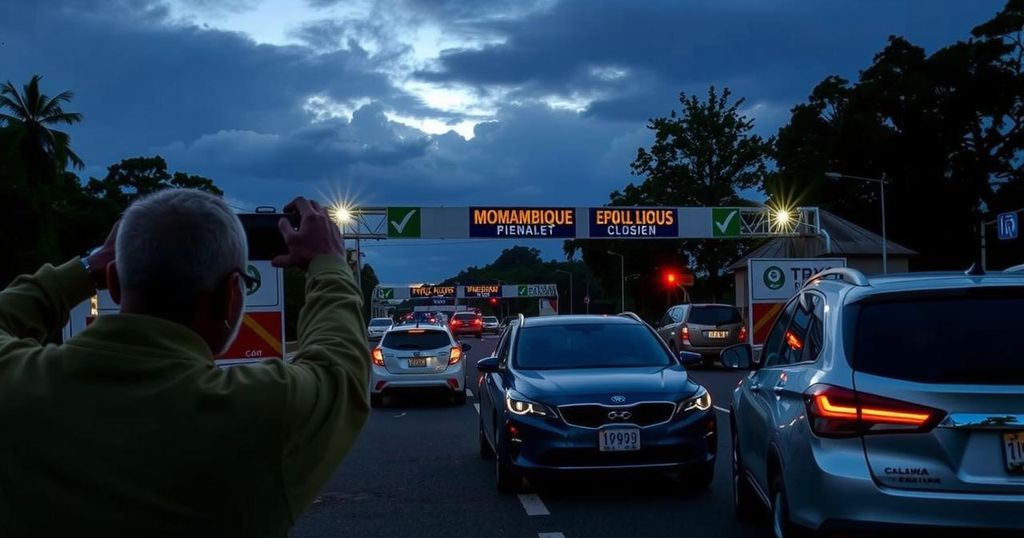South Africa closed the Lebombo border with Mozambique due to violent protests following a disputed presidential election. The unrest has resulted in multiple fatalities and significant clashes. Authorities are prioritizing safety, advising travelers to use alternate crossings, and have engaged border security measures to prevent the violence from spreading into South Africa.
South Africa has temporarily shut the Lebombo border crossing with Mozambique due to escalating violence following recent electoral protests in Mozambique. The unrest erupted after the ruling Frelimo party won the disputed presidential election, inciting protests that led to deadly confrontations across several cities. Reports detail vehicles set ablaze near the border, prompting the South African Border Management Authority to prioritize public safety by closing this critical transit point until further notice. As one of southern Africa’s busiest land crossings, situated 110 kilometers from Maputo, Lebombo serves as a crucial connection between the two nations. Authorities have recommended that travelers utilize alternative crossing points as safety measures are enforced. Border officials indicated that while the South African side remains unaffected, the urgency to secure the area and ensure passenger safety is paramount. In the context of these developments, the southern province has witnessed protests escalated by allegations of electoral malpractice, with over 18 fatalities reported by Human Rights Watch since the unrest began. Opposition figure Venâncio Mondlane expressed his concerns regarding potential assassination attempts following his loss in the election, where he secured 20% of the vote. Humanitarian measures are being enacted to address the situation, including the acceptance of seven Mozambican officials seeking refuge in South Africa. The South African police and military have been deployed to ensure that the protests do not extend across the border. In a statement addressing the unrest, Defence Minister Cristovao Chume warned of potential military deployment in response to the ongoing civil disturbances.
This situation arises from Mozambique’s contentious presidential election, where the ruling Frelimo party has drawn significant criticism for alleged electoral misconduct. The unrest has shown its potential to disrupt regional stability, with South Africa taking immediate precautions to protect its borders and ensure the safety of its citizens. This context is exacerbated by a history of tensions related to political transitions within Mozambique, placing regional authorities in a delicate position of managing cross-border implications of domestic strife.
In summary, the closure of the Lebombo border crossing reflects the serious ramifications of Mozambique’s electoral violence on regional stability and safety. As protests continue and unrest persists, it is crucial for both nations to cooperate in addressing the underlying political issues while safeguarding their citizens. The current situation necessitates careful monitoring as it evolves, with significant implications for both South Africa and Mozambique in terms of security and diplomatic relations.
Original Source: www.bbc.co.uk







